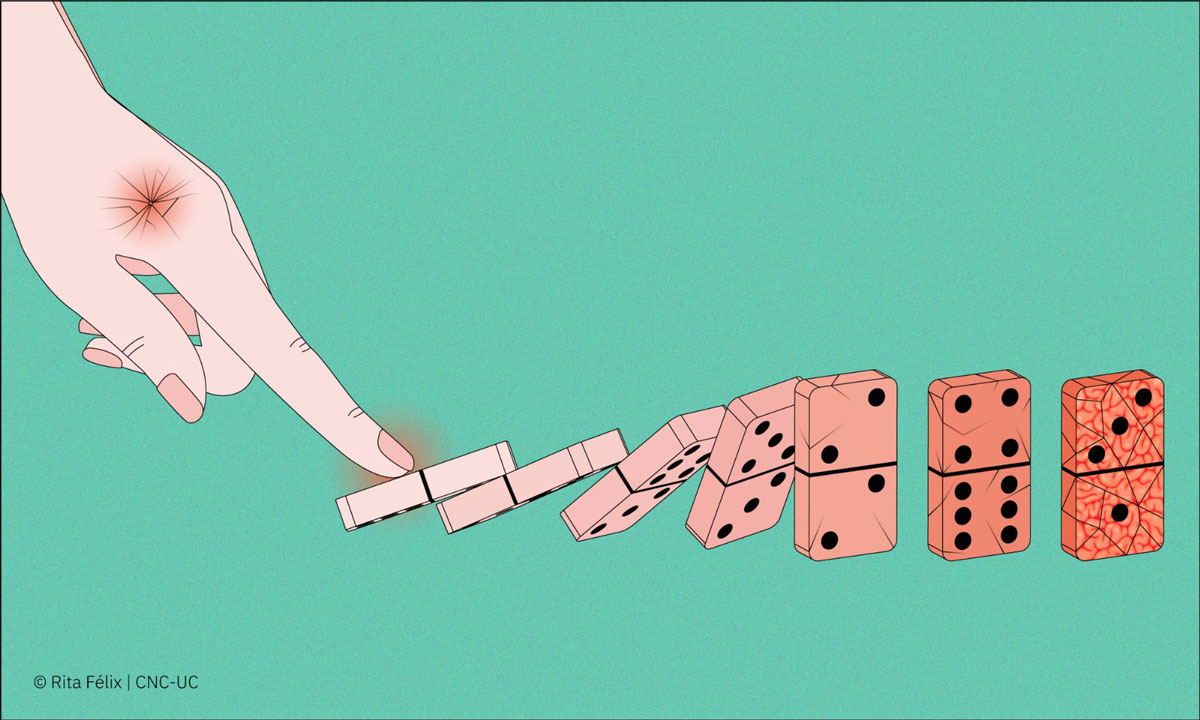Based on the study of the effects of senescent cells – cells that accumulate as organs age – in other parts of the human body, two teams of Portuguese scientists discovered that the presence of these ‘old cells’ in the skin can negatively affect other organs of the human body, especially the brain, by spreading ageing signals.
This discovery paves the way for the study of future therapies that may delay the ageing process of the human body.
“This research provides the first direct evidence that senescent cells in the skin can accelerate ageing in other parts of the body. It suggests, therefore, that senescence of skin cells may contribute to widespread ageing effects,” explains the team from the Center for Neurosciences and Cellular Biology (CNC-UC/CiBB) of the University of Coimbra (UC) and the Faculty of Pharmacy of UC (FFUC) involved in the research.
To develop this study, the teams of scientists investigated the effects of senescent cells on the skin of young mice. They were able to understand that the presence of these aged cells in the skin led to a decrease in musculoskeletal function, increased physical weakness, and decreased memory capacity in the mice. They also observed that the brain was affected, particularly the hippocampus, a key area for memory and cognitive function, “conditions frequently observed in ageing,” emphasizes one of the coordinators of the study, Cláudia Cavadas, leader of the research group in Neuroendocrinology and Aging at CNC-UC/CiBB. “These reactions indicate that there was a link between the aged cells in the skin and the brain,” she adds.
The results of this study thus contribute to the understanding of the organism’s ageing, “potentially opening the way to investigate innovative interventions aimed at delaying the systemic ageing process,” highlights the scientist. “They may also potentially explain the link between skin diseases and other diseases associated with ageing,” she adds.
New data on human body ageing are crucial today since “the ageing population is a global concern and one of the major risk factors for leading chronic diseases, such as neurodegenerative diseases,” the scientist further states.
The research thus opens the way for new investigative possibilities on ageing that may focus, for example, “on better understanding senescent cells in the skin and exploring new strategies aimed at eliminating or neutralizing senescent cells in the skin to reduce their systemic effects on the ageing of the organism,” adds the co-coordinator of this study, leader of the Cellular and Molecular Aging Laboratory at Mayo Clinic in the United States, João Passos.
The results of this research are available in the scientific article “Senescent cell transplantation into the skin induces age-related peripheral dysfunction and cognitive decline,” published in the journal Aging Cell, with a doctoral student from FFUC and CNC-UC, Ana Catarina Franco, as the first author.
Follow us on Facebook, Twitter, Instagram, Youtube, and TikTok and see the exclusive content for social networks.




